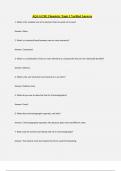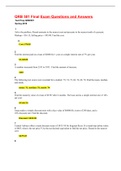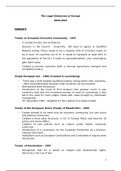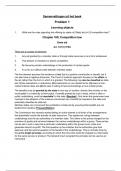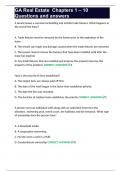1. What is the smallest unit of an element that can exist on its own?
Answer: Atom.
2. What is a chemical bond between two or more elements?
Answer: Compound.
3. What is a combination of two or more elements or compounds that are not chemically bonded?
Answer: Mixture.
4. What is the sum of protons and neutrons in an atom?
Answer: Relative mass.
5. What do you use to draw the line for chromatography?
Answer: Pencil.
6. What does chromatography separate, and why?
Answer: Chromatography separates inks because dyes move at different rates.
7. Why must the solvent start below the ink in chromatography?
Answer: The solvent must start below the ink to avoid ink dissolving.
, 8. What stays at the baseline in chromatography, and why?
Answer: Insoluble dyes stay at the baseline because they do not move with the solvent.
9. Where do you measure the distance for rf values?
Answer: You measure the distance from the middle of the spot.
10. What is used to calculate rf values?
Answer: The substance distance divided by the solvent distance equals rf.
11. What is used to separate insoluble solids from liquids?
Answer: Filtration uses filter paper to separate insoluble solids from liquids.
12. What process separates soluble solids from solutions if they don't decompose?
Answer: Evaporation separates soluble solids from solutions if they don't decompose.
13. What is used to separate a salt that decomposes in solution?
Answer: Crystallization separates a salt that decomposes in solution by removing heat once salts start to
form.
14. How do you separate rock salt?

